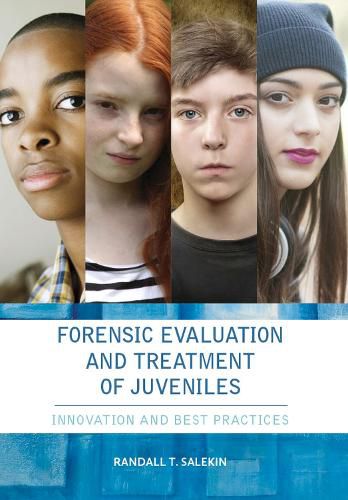Readings Newsletter
Become a Readings Member to make your shopping experience even easier.
Sign in or sign up for free!
You’re not far away from qualifying for FREE standard shipping within Australia
You’ve qualified for FREE standard shipping within Australia
The cart is loading…






Psychologists have always played a key role in determining how the juvenile justice system assesses and treats young offenders. Recent neuropsychological findings shows that there are important developmental differences between juvenile offenders, such as varying levels of maturity, risk potential, and amenability to treatment, not to mention individualized personality traits and possible mental disorders. Psychologists must therefore strive for targeted rehabilitation services to avoid unfair treatment and redirect youth to healthier life choices.
This book is a practical guide that will help psychologists answer important psycho-legal questions to properly assess and treat juvenile offenders. These guidelines primarily focus on disposition evaluations, which describe adolescent offenders and paths to rehabilitation, and transfer evaluations, which determine whether juveniles should be moved to adult courts. Psychological assessments can greatly influence a judge s decision, so this book will help forensic clinicians consider important external factors, such as local laws and the political climate, and present assessment data to judges in a thorough, understandable manner.
This book will also be valuable for attorneys, judges, criminologists, and legal scholars who want to understand the psychological science behind juvenile assessment.
$9.00 standard shipping within Australia
FREE standard shipping within Australia for orders over $100.00
Express & International shipping calculated at checkout
Psychologists have always played a key role in determining how the juvenile justice system assesses and treats young offenders. Recent neuropsychological findings shows that there are important developmental differences between juvenile offenders, such as varying levels of maturity, risk potential, and amenability to treatment, not to mention individualized personality traits and possible mental disorders. Psychologists must therefore strive for targeted rehabilitation services to avoid unfair treatment and redirect youth to healthier life choices.
This book is a practical guide that will help psychologists answer important psycho-legal questions to properly assess and treat juvenile offenders. These guidelines primarily focus on disposition evaluations, which describe adolescent offenders and paths to rehabilitation, and transfer evaluations, which determine whether juveniles should be moved to adult courts. Psychological assessments can greatly influence a judge s decision, so this book will help forensic clinicians consider important external factors, such as local laws and the political climate, and present assessment data to judges in a thorough, understandable manner.
This book will also be valuable for attorneys, judges, criminologists, and legal scholars who want to understand the psychological science behind juvenile assessment.